1. Married… with Children (1987–1997)
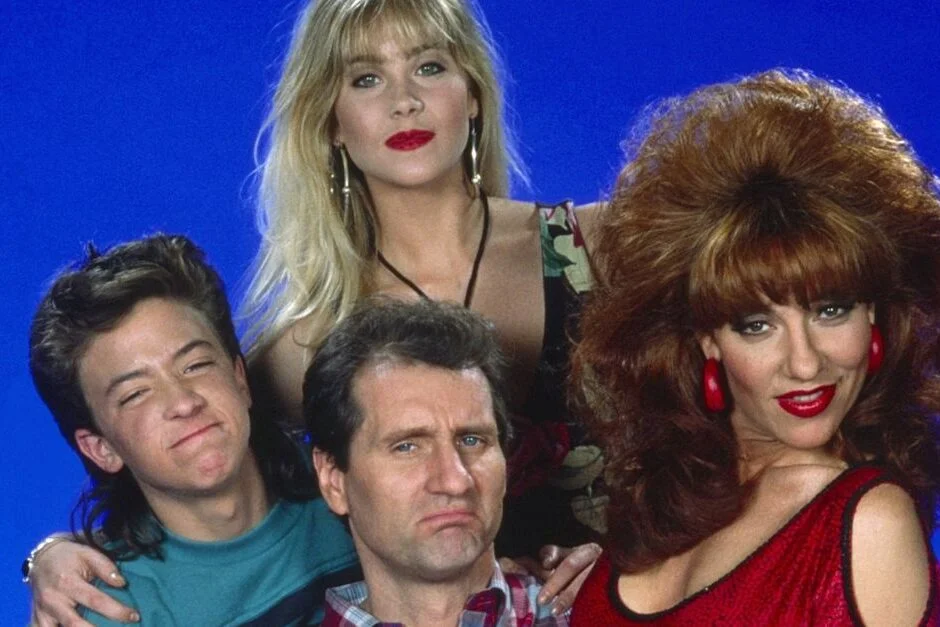
Married… with Children was a sharp departure from the wholesome sitcoms of the ’80s, offering a satirical look at a dysfunctional family. The Bundys, led by the sarcastic shoe salesman Al, became infamous for their crude humor and biting social commentary. The show frequently mocked consumerism, gender roles, and suburban life, often pushing the boundaries of what was considered acceptable on television. Its edgy content led to numerous complaints and even protests, but it also garnered a dedicated fanbase that appreciated its irreverent take on family life.
In today’s television landscape, Married… with Children would likely face significant challenges in finding a network willing to air it. The show’s unapologetic humor, which often relied on stereotypes and controversial topics, would be scrutinized under modern standards of sensitivity and inclusivity. While it remains a cult classic for many, its content is increasingly viewed as outdated and potentially offensive, reflecting a time when television was less concerned with political correctness.
2. Diff’rent Strokes (1978–1986)
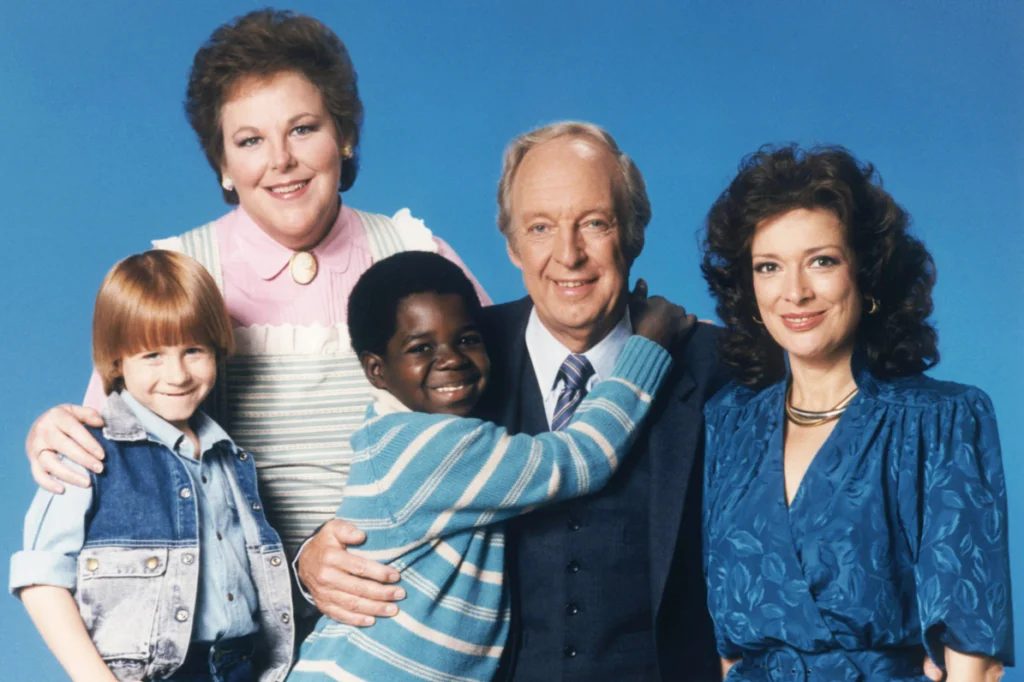
Diff’rent Strokes was groundbreaking for its portrayal of an affluent white man adopting two Black brothers from Harlem. The show tackled issues like racism, class disparity, and family dynamics, often with a comedic twist. However, it also faced criticism for perpetuating stereotypes and for storylines that some felt were overly simplistic or unrealistic. One of the most controversial episodes involved a storyline about child molestation, which was considered taboo for a sitcom at the time.
Looking back, some of the show’s attempts to address serious issues now seem heavy-handed or misguided. The portrayal of certain social problems, while progressive for the time, may come across as overly sensationalized or naïve by modern standards. The mix of lighthearted humor and serious issues now feels jarring, highlighting how much television has evolved in its approach to sensitive topics.
3. The Jeffersons (1975–1985)
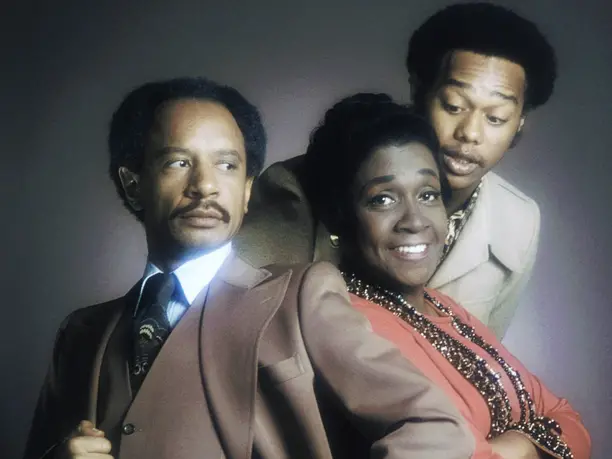
The Jeffersons was a groundbreaking sitcom that took viewers into the lives of George and Weezy Jefferson, a Black couple who moved into an upscale apartment in Manhattan. The show was one of the first to portray a successful Black family, and it tackled issues like race, class, and social mobility. George’s brash attitude and his interactions with his neighbors often pushed boundaries, using humor to address prejudice, inequality, and social change.
Today, some of the show’s content, particularly its portrayal of racial tension, feels awkward or outdated. While The Jeffersons was ahead of its time in many ways, the humor around race and class would likely face heavy scrutiny today, with modern audiences perhaps finding some jokes insensitive. The show’s significance in TV history is undeniable, but its approach to difficult subjects might seem less relatable to a contemporary audience.
4. All in the Family (1971–1979)
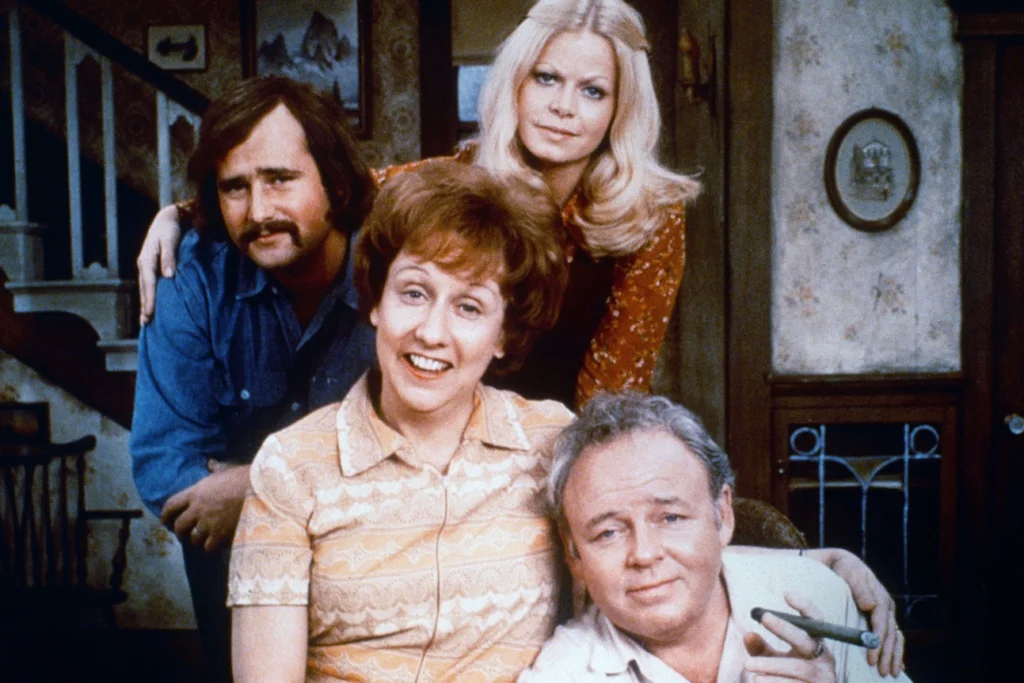
All in the Family shocked audiences by introducing Archie Bunker, a blue-collar worker with deeply conservative, often bigoted views. The show used humor to challenge social norms and political correctness, addressing topics like racism, feminism, and the Vietnam War. Despite its controversial content, it became one of the most popular sitcoms of the ’70s, even earning critical acclaim for its bold storytelling.
In retrospect, All in the Family‘s humor feels more like a product of its time, with many of Archie’s views now considered offensive and harmful. The show’s confrontational approach to controversial issues, while revolutionary in its day, might be seen as tone-deaf by today’s standards. Its ability to stir up conversation was its strength, but also its downfall, as many of its jokes now seem too extreme and outdated.
5. Three’s Company (1977–1984)
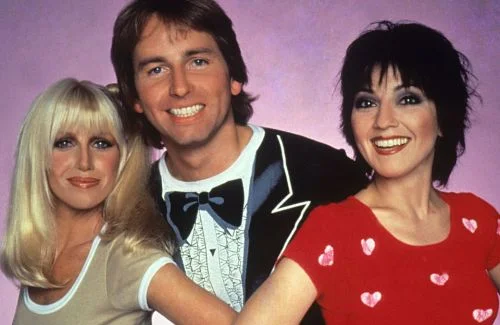
Three’s Company was known for its risqué humor, revolving around a man pretending to be gay to live with two women in the same apartment. The show’s premise was built on sexual misunderstandings and innuendos, leading to countless situations where the characters found themselves in awkward, often compromising, positions. While the show was widely popular, it often pushed the boundaries of what was considered acceptable in mainstream television.
Looking back, Three’s Company now seems more uncomfortable than funny. The show’s reliance on sexual stereotypes and its treatment of gender and sexuality would not be received the same way today. What was once considered edgy humor now feels outdated, with the portrayal of LGBTQ+ characters and relationships now viewed as problematic.
6. The Facts of Life (1979–1988)
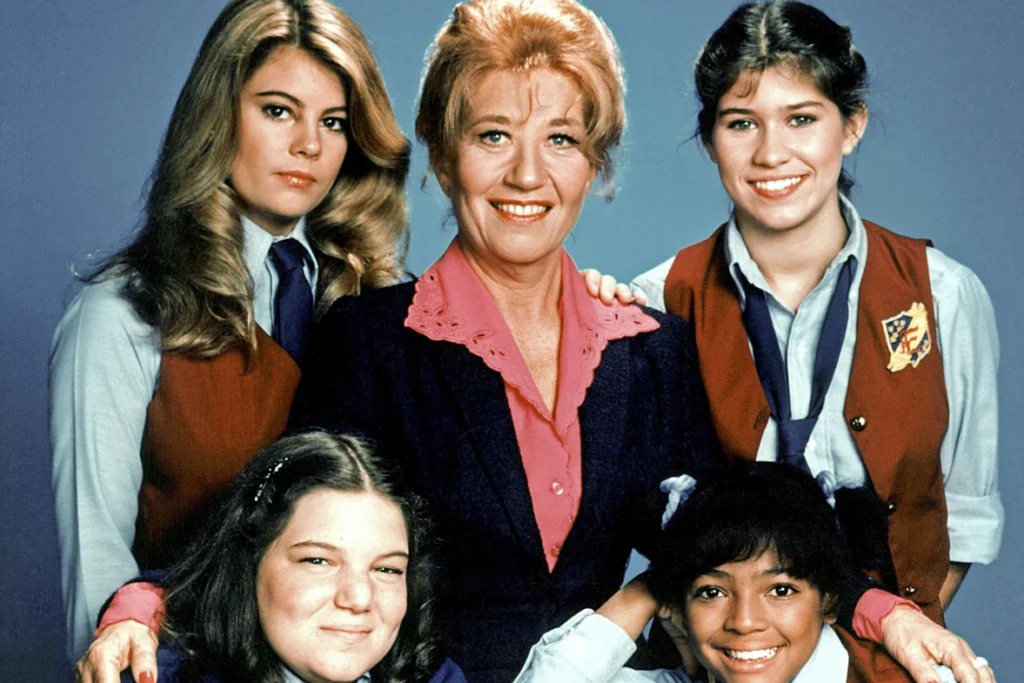
The Facts of Life started as a lighthearted series about a girls’ boarding school, but it quickly became known for tackling serious and often taboo subjects such as abortion, addiction, and body image. The show pushed boundaries with its candid discussions about teenage issues, something not often seen on television at the time. Though it had moments of humor, the show wasn’t afraid to dive deep into sensitive topics, sometimes even in a heavy-handed way.
While The Facts of Life was applauded for addressing real issues, some of its storylines now seem overly dramatic or preachy. The approach to topics like teen pregnancy and substance abuse feels dated, and some of the moral lessons conveyed through the characters’ struggles may come across as overly simplistic today. The show’s attempt to balance entertainment with education often feels awkward, making it less impactful by modern standards.
7. The Golden Girls (1985–1992)
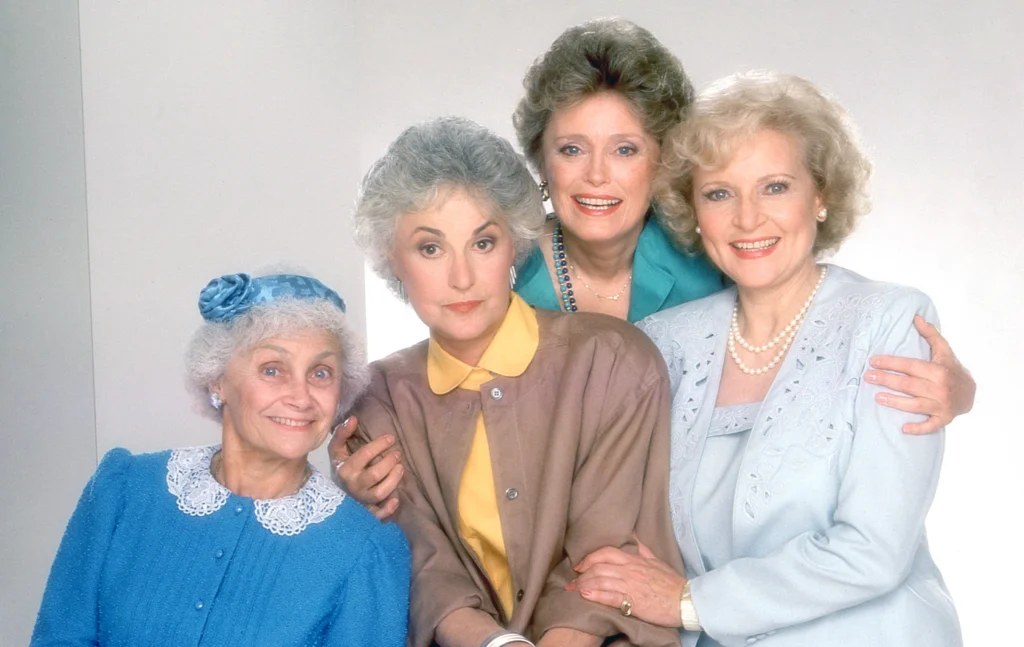
The Golden Girls pushed boundaries in its depiction of older women living together, not just as family, but as independent, sexual, and socially active individuals. The show addressed issues of aging, menopause, sexuality, and LGBTQ+ rights, often with sharp humor. The characters, including the quick-witted Dorothy, lovable Blanche, and naïve Rose, became icons by tackling serious subjects with grace and humor.
Today, The Golden Girls still resonates with viewers, but certain aspects of the show, especially its handling of LGBTQ+ characters and aging, might be viewed as oversimplified. Some jokes, which were once considered bold and progressive, may now seem stereotypical or insufficient in their portrayal of complex issues. However, the show’s legacy in promoting positive aging and strong female friendships remains intact, even if certain elements are no longer considered groundbreaking.
8. Roseanne (1988–1997, 2018)
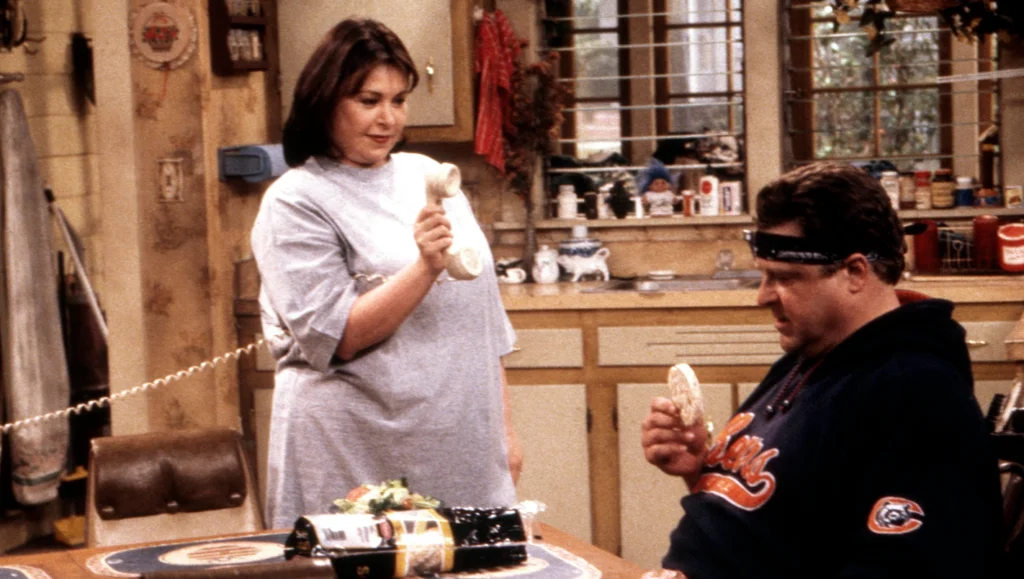
Roseanne was groundbreaking for its portrayal of a working-class family living in the fictional town of Lanford, Illinois. The show often explored issues like economic hardship, political differences, and family dynamics, while pushing the boundaries of what was considered acceptable for a primetime sitcom. Roseanne Barr’s portrayal of the sharp-tongued, unapologetic matriarch made waves, challenging traditional depictions of women in family sitcoms.
Looking back, Roseanne’s portrayal of controversial subjects, particularly in its reboot, may seem too blunt and even insensitive. The show’s handling of topics like politics and mental health would likely be scrutinized today, as its treatment of these sensitive issues can come across as dismissive or reductive. What once felt daring is now often seen as a reflection of a time when audiences were less concerned with nuanced portrayals of real-world issues.
9. Maude (1972–1978)
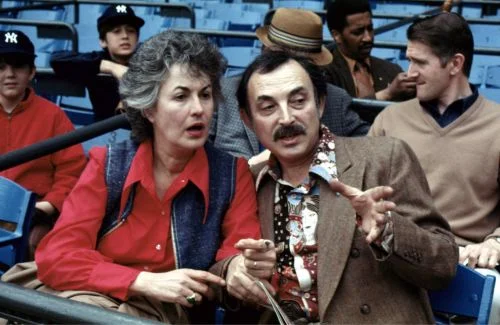
Maude was a spin-off of All in the Family, following the outspoken and politically active Maude Findlay. The show tackled controversial issues such as abortion, divorce, and women’s rights in an era when such topics were rarely discussed on television. Maude’s bold personality and willingness to address these subjects head-on made the show ahead of its time, though its approach was not without controversy.
In hindsight, Maude’s feminist themes and candid discussions of societal issues seem dated, and some of the humor around them now feels forced. The show’s commitment to tackling social issues often led to preachy dialogue, and many of its once-groundbreaking moments are now seen as heavy-handed. While it laid the groundwork for future feminist television, Maude doesn’t always hold up in the way it once did.
10. Punky Brewster (1984–1988)
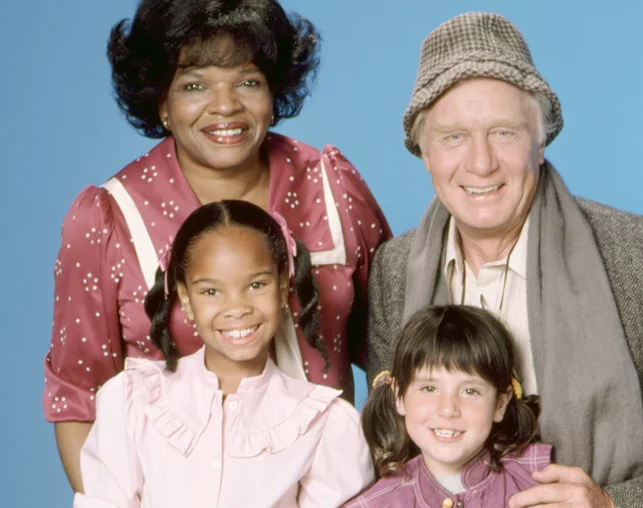
Punky Brewster told the story of a spunky young girl who was raised in an unconventional household after being abandoned by her parents. The show dealt with issues of adoption, family, and growing up, often exploring serious topics through the lens of a quirky and optimistic child. The portrayal of an unconventional family dynamic, with Punky’s father figure Henry, was progressive for its time, offering a fresh take on what family could look like.
Looking back, Punky Brewster’s attempt to address serious issues, such as the struggles of growing up in an unconventional family, sometimes feels overly sentimental. The show’s message, which focused on finding family in unexpected places, was heartwarming but at times cloying. What was once seen as an innovative and heartening look at adoption now feels somewhat simplistic, especially as today’s TV shows tend to delve into more complex portrayals of nontraditional families.
11. ALF (1986–1990)
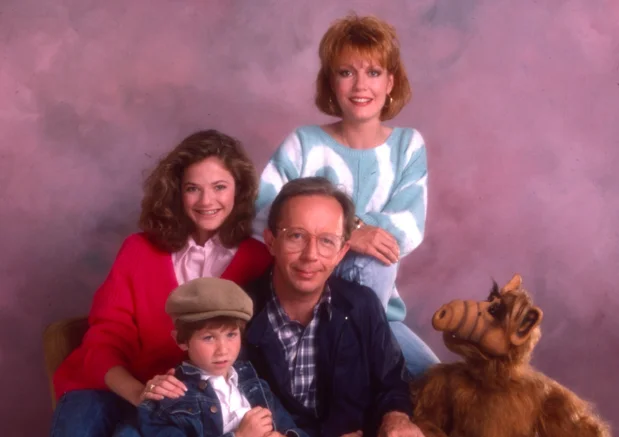
ALF was a sitcom about an alien named Gordon Shumway (nicknamed ALF) who crash-lands in the garage of a suburban family. While the show’s premise was bizarre, it became a hit by mixing science fiction with family comedy. ALF’s misadventures in the Tanners’ home, along with his obsession with eating their pet cat, made for strange yet funny moments that often pushed the envelope on what could be aired during primetime.
Today, ALF‘s wacky premise and humor about an alien trying to assimilate to human life would likely seem too outlandish for modern audiences. The slapstick nature of the show, mixed with ALF’s inappropriate behavior, which once seemed hilarious, might now feel like low-brow humor. The show’s bizarre antics and silly premise might not resonate in the same way, especially when compared to more sophisticated comedies.
12. Family Ties (1982–1989)
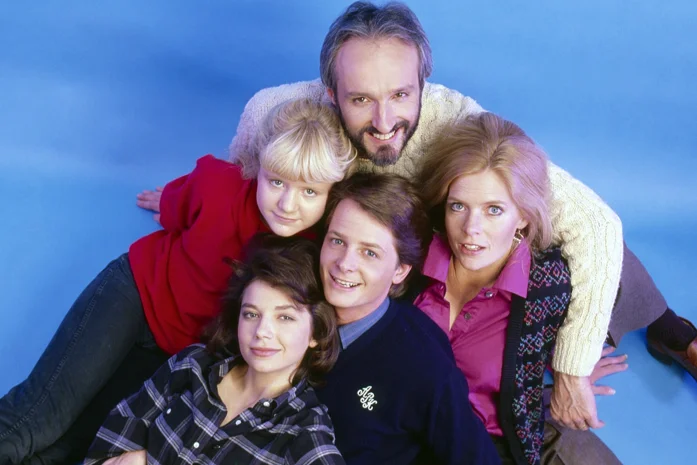
Family Ties was a family sitcom that reflected the cultural shift of the early ’80s, with parents who were former 1960s radicals raising children in the 1980s’ more conservative climate. The show dealt with political and generational differences, most notably through the character of Alex P. Keaton, played by Michael J. Fox. His staunch Republican views were in sharp contrast to his parents’ liberal past, creating a comedic tension throughout the show.
Now, Family Ties’s political humor may seem less relevant, and its portrayal of political differences is much more lighthearted than would be acceptable today. The show’s attempt to portray the complexities of political identity in a comedic way now feels simplistic, with many of the issues it raised becoming even more polarizing. While the show remains beloved, its political humor has not aged as well as the timeless family dynamics it also explored.


